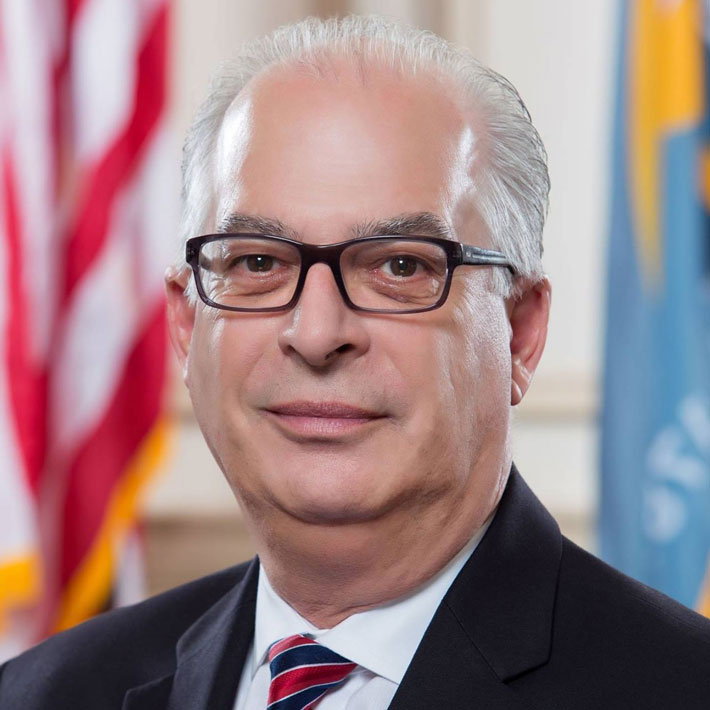Bill Mimics Core Aspect of Hospital Oversight Measure
For Immediate Release: Thursday, May 9, 2024
For More Information: Joseph Fulgham, 302-744-4184
A proposal soon to be introduced in the House of Representatives would fundamentally reform the state budgeting process and hold lawmakers accountable for meeting spending benchmarks.
The measure’s lead sponsor, State Rep. Danny Short (R-Seaford), is a member of the Delaware Economic and Financial Advisory Council (DEFAC), a nonpartisan group responsible for estimating state revenue. By law, the State is limited to spending no more than its anticipated revenue, so the group’s forecasts are essential to the state budgeting process.
Less well-known is that the council also sets an advisory budget growth benchmark. Originally proposed as part of a constitutional amendment sponsored by House and Senate Republicans in 2018, the suggested spending growth limit was adopted by Gov. John Carney via Executive Order 21 later the same year after legislative Democrats failed to support the bill’s passage. The benchmark considers factors such as personal income growth, state population growth, and inflation in the cost of goods and services purchased by the government.
“The current limitation on state budget growth has two critical problems,” Rep. Short emphasized. “First, it isn’t binding. It’s a guideline that has been repeatedly ignored. Second, because it was established by executive order, it will cease to exist after the Carney administration comes to an end in January.”
In his 2024 State of the State Address in March, Gov. Carney spoke to this second point:
We’ve made big strides on financial management…But, despite our efforts, we did not pass legislation to permanently control operating spending at sustainable levels. An earlier General Assembly rejected my proposed Constitutional amendment that would have done just that. It’s really pretty simple. Delaware can’t compete in the future if we don’t have our budget in order. Right now, a future General Assembly or a governor could lead us down a path of uncontrolled spending. That would lead to higher taxes, and painful cuts. So, let’s not go backwards. Instead, let’s build on the progress we’ve made…I won’t be here next year. But most of you will. Don’t set yourselves up for failure. I hope we can find common ground on this important priority for every Delaware taxpayer.
Rep. Short’s State Spending Accountability Act would permanently establish the state spending growth benchmark by adding it to the state constitution. The proposal would also create the Budget Accountability Review Commission (BARC), a public-private oversight panel that would ensure that the state budget does not exceed its growth limits.
“My proposal builds on the reform bill that I supported six years ago by including an enforcement mechanism inspired by the hospital bill,” Rep. Short said.
According to a news release issued by House Speaker Valerie Longhurst (D-Bear, Delaware City) regarding her sponsorship of the hospital cost control bill (HS 2 for HB 350), her measure would create the Diamond State Hospital Cost Review Board that would be tasked with ensuring that any changes to hospital budgets align with the state’s healthcare spending benchmarks.
“Simply stated, the skyrocketing costs of healthcare have become unsustainable,” said Speaker Longhurst in the release. “Through the establishment of the Diamond State Hospital Cost Review Board, we are not only taking decisive action to protect Delaware families but also addressing this pressing issue with the attention it demands. This proven approach…will usher in crucial transparency and accountability to our hospital budgets.”
Under Rep. Short’s proposal, the 11-member Budget Accountability Review Commission would act in the same fashion as the Diamond State Hospital Cost Review Board but would be charged with aligning the state’s budget growth benchmarks and providing crucial transparency and accountability to state spending. Among the members of BARC would be one representative of each county government, the Chair of the Delaware Economic and Financial Advisory Council, state lawmakers, and representatives of the business community.
“The arc of our state spending growth is unsustainable, and the state has been unsuccessful in adhering to advisory spending growth limitations,” Rep. Short said.
Two years ago, the legislature approved a state operating budget exceeding the state spending growth benchmark by 53%. Last year, spending was 62% higher than the setpoint. Lawmakers are on track for the upcoming FY 2025 to be at least 42% over the budget growth target.
“Year after year, the state greatly exceeds the spending growth benchmark set forth by DEFAC,” said Senate Republican Whip Brian Pettyjohn (R-Georgetown), the bill’s Senate prime sponsor. “Legislators and government should be held accountable, and this bill is necessary to do just that. It’s imperative that our government’s budget growth be responsible and sustainable.”
The State Spending Accountability Act would reform the General Assembly’s process for writing the annual multi-billion state operating budget. The budget-writing Joint Finance Committee would need to present its state spending plan for the new fiscal year (which starts July 1) in May and June, immediately following the final two state revenue estimates, to the Budget Accountability Review Commission. The commission would review the proposals to ensure they do not exceed the state spending growth benchmark.
No budget could proceed to a vote in the legislature without BARC approval. Any approved budget amended after receiving authorization would be required to be resubmitted to the commission for another endorsement. Any budget exceeding the spending benchmark would be returned to the Joint Finance Committee for compliance revisions. The JFC could make the needed revisions and resubmit the budget or appeal to the commission to exceed the spending cap based on extraordinary circumstances. The commission could vote to exceed the cap with a two-thirds supermajority vote. In cases where the JFC refused to observe the state budget growth benchmark, the commission would work with the Office of the Controller General to make its own revisions to produce a compliant budget.
Rep. Short anticipates circulating the bill for sponsorship next week and expects the lawmakers backing the hospital control bill to support his measure. “If we are intent on imposing state oversight to ensure that hospitals adhere to spending growth limits, how can any legislator supporting that proposal hesitate to hold themselves to the same standard?”
###
















